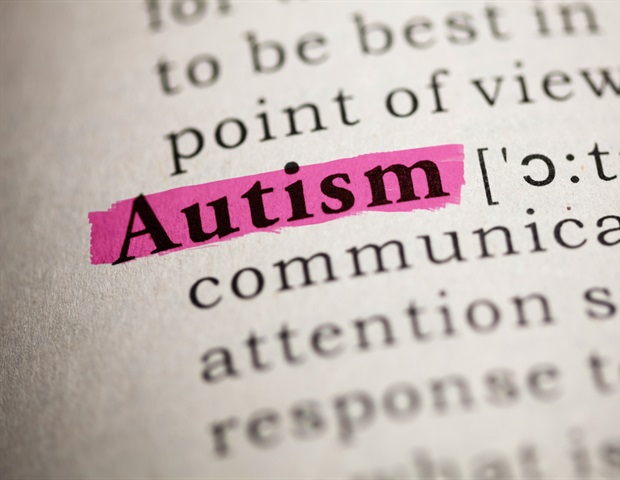About 50% of all mothers of children with autism spectrum disorder (ASD) had elevated levels of depressive symptoms over 18 months, while rates were much lower (6% to 13.6%) for mothers with neurotypical children in the same period, UCSF researchers report in a new study published August 26 in Family Process.
In addition, while past studies suggest having a parent with depression increases the risk that children will have mental health and behavior problems, this study found something different.
"We found mothers' higher symptoms of depression did NOT predict increases in children's behavior problems over time, including among families with a child with autism who experience a lot of stress," said Danielle Roubinov, PhD, UCSF assistant professor in the Department of Psychiatry and Behavioral Sciences, and first author of the study. "That was surprising and good news."
"Being the parent of a child with special needs is inherently challenging every day," noted Elissa Epel, PhD, UCSF professor in the Department of Psychiatry and Behavioral Science, and senior author of the study. "It is a prototypical example of chronic stress, which is why we have been focusing on caregiving moms in our studies that examine effects of stress on health."
"We already know from this sample that mothers with more depression tend to have signs of faster biological aging, such as lower levels of the anti-aging hormone klotho and older immune cells, on average," added Epel. Here, we wanted to understand the impact of their depression on their child, and vice versa."
A one-way street
The researchers found that child behavior problems predicted higher levels of maternal depression down the road, regardless of ASD status. They didn't see the inverse effect, however; prior maternal depression didn't predict child behavior problems later.
"The finding that maternal depression does not lead to worsened child symptoms is especially important for mothers of children with ASD to help alleviate guilt many mothers feel about their children's diagnosis and behavior problems," said Roubinov. "We hope these findings will reassure mothers that it's both common to struggle with some depression in this high-stress situation of chronic caregiving, and that their depression likely isn't making their child's behavioral issues worse."
Self-blame and guilt among parents of ASD children is common and predicts worsening depression and lower life satisfaction over time, the team's past research shows.
In the current study, the researchers repeatedly measured maternal depression and children's behavior problems in 86 mother-child dyads across 18 months. Half of the mothers had children with ASD and half had neurotypical children. The age range of children in the study was two to 16 years old, though the majority (75%) of the children were elementary age or younger.
Maternal depression was measured using the Inventory of Depressive Symptoms, a self-report scale completed by mothers. Child behavior was measured through maternal report on the Child's Challenging Behavior Scale, which focuses on externalizing behaviors such as tantrums, aggression and defiance. The researchers said future studies should also look at associations between maternal depression and children's internalizing symptoms (e.g., withdrawal, anxiety, emotional reactivity).
Few studies on maternal depression, child behavior in ASD context
Bidirectional associations between maternal depression and child behavior problems have been reported in prior research. However, few studies have examined these relationships in families with autism.
Families with autism tend to experience more marital conflict, lower relationship satisfaction, and many other challenges, said Roubinov.
"A stressful family environment may spill over onto family members and could change the ways mothers and children relate to each other," she said. "We wanted to see whether the link between maternal and child mental health was different in the context of a high-stress family system, such as when a child has autism."
Although the study acknowledged that families with a child with ASD experience high levels of stress, the authors were cautious to note that stress is not their only defining characteristic.
"Many mothers of children with autism also report high levels of emotional closeness and positive interactions with their children," Roubinov said. "These are important experiences that supportive programs can build upon."
Following the study, the researchers offered mindfulness classes to all parents to help manage parenting stress. "The parents were grateful to share common challenges and learn inner strategies to cope," Epel said. "Many studies have shown that mindfulness training can help with parenting stress, and we also found our parents showed improved mental health."
It is important to experience and notice positive emotions and joy, despite having a more challenging life situation, said Epel.
"Given the effects of chronic stress on health and mood, caregiving parents need extraordinary emotional support in addition to the special services for their child," she said. "It's as vital to provide support for parents' mental health as it is for children's mental health."
Physicians should be on the lookout for parental distress and ready to offer resources for parents, especially for parents of special needs children, she said. In the Bay Area, support groups can be found at the National Alliance on Mental Illness's California chapter, Support for Families of Children with Disabilities, and through some health insurers.
University of California – San Francisco
Posted in: Child Health News | Medical Research News | Women's Health News
Tags: Aging, Anxiety, Autism, Children, Chronic, CT, Depression, Education, Hormone, Medicine, Mental Health, Parenting, Psychiatry, Research, Stress
Source: Read Full Article
